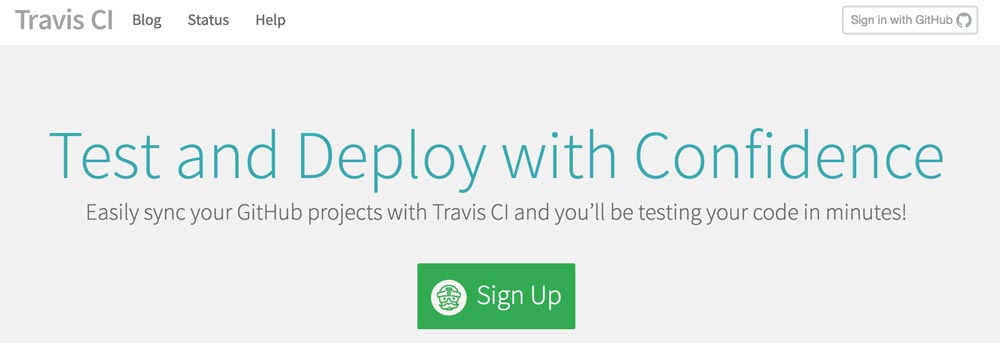Travis CI
Monday, May 30th, 2016 | Programming, Tech

Travis CI is a cloud-based continuous integration tool. Notably, it is also free for open source projects. They do paid subscriptions as well if there is a private repo you want to test. If you just want to test a public GitHub project though, it’s free and really easy to set up.
You can log in with your GitHub account. Once you have done this, you are given a list of your projects and you can turn on Travis CI for each one individually. Using the GitHub hook, you can configure Travis CI to automatically run a build every time code is pushed to the repo.
It supports an array of different languages and platforms. To get up-and-running, you need to add a config file into your repo. This is pretty simple. Here one I am using for a PHP project:
language: php
php:
– ‘5.5’
– ‘5.6’
– ‘7.0’
install: composer install
This configures it to run it on three different versions of PHP, and install the dependencies before starting the test. It comes with many of the common PHP extensions already enabled, and an additional list of ones you can enable if you need them.

Travis CI is a cloud-based continuous integration tool. Notably, it is also free for open source projects. They do paid subscriptions as well if there is a private repo you want to test. If you just want to test a public GitHub project though, it’s free and really easy to set up.
You can log in with your GitHub account. Once you have done this, you are given a list of your projects and you can turn on Travis CI for each one individually. Using the GitHub hook, you can configure Travis CI to automatically run a build every time code is pushed to the repo.
It supports an array of different languages and platforms. To get up-and-running, you need to add a config file into your repo. This is pretty simple. Here one I am using for a PHP project:
language: php
php:
– ‘5.5’
– ‘5.6’
– ‘7.0’install: composer install
This configures it to run it on three different versions of PHP, and install the dependencies before starting the test. It comes with many of the common PHP extensions already enabled, and an additional list of ones you can enable if you need them.